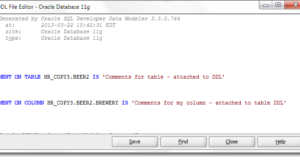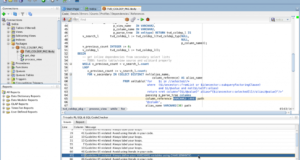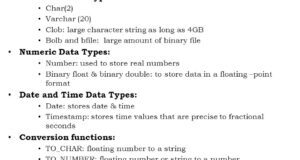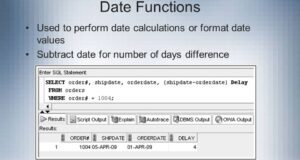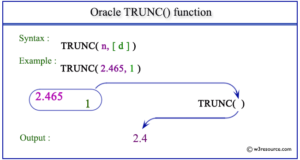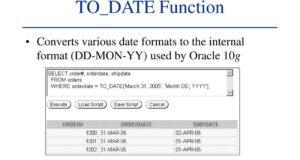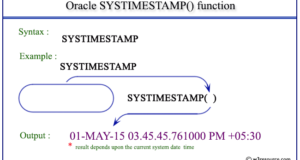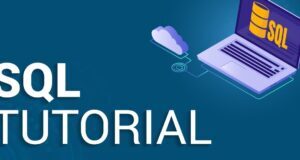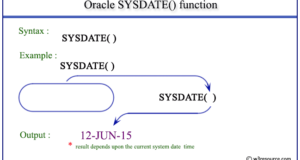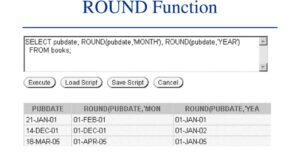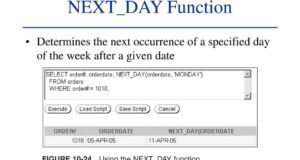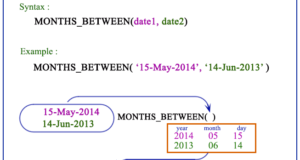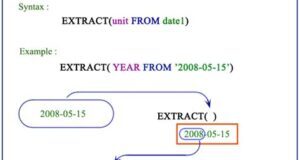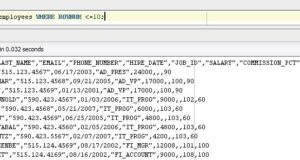Tag: SQL
Today I want to talk about the simple things that will help novice SQL programmers more correctly, thoughtfully and simply make the logic of their queries and learn SQL faster.All of these...
Did you know that you can put comments into SQL statements in Oracle? Comments can appear in one line or be distributed over several lines. Let's see how this can be done.There are two...
In this tutorial you will learn how to use literals (text, integers and numbers) in Oracle with examples.In Oracle, he wrote the same thing as the constant. We will consider three types of...
Below is a list of data types available in Oracle/PLSQL, which includes character, numeric, date/time, Boolean LOB, RowId data types. Symbolic data types Below are the character data types in...
Oracle PL SQL date / time functionsFunction DescriptionADD_MONTHS The Oracle/PLSQL function ADD_MONTHS returns a date plus n months.CURRENT_DATE Oracle/PLSQL function...
The Oracle/PLSQL TRUNC function returns a date truncated to a specific unit. Oracle/PLSQL syntax of TRUNC function TRUNC ( date_id, [ format_id ] ) Parameters and function arguments...
The Oracle/PLSQL TO_DATE function converts a string into a date. Syntax of the Oracle/PLSQL TO_DATE function TO_DATE( string1_id, [ format_mask_id ], [ nls_language_id ] ) Parameters and...
Oracle/PLSQL SYSTIMESTAMP function returns the current system date and time (including fraction of a second and time zone) to your local database. Oracle/PLSQL syntax of SYSTIMESTAMP...
Every self-respecting web developer should know SQL.Although it has existed since the 70s of last century, it is still very widely used, and without it it will be difficult to create...
Oracle/PLSQL SYSDATE function returns the current system date and time on your local database. Oracle/PLSQL syntax of the SYSDATE function SYSDATE Parameters and function argumentsNo...
The Oracle/PLSQL ROUND function returns a date rounded to a specific unit. Oracle/PLSQL syntax of the ROUND function (for dates) ROUND( date_id, [ format_id ] ) Parameters and function...
Oracle/PLSQL NEXT_DAY function returns the first day of the week that is larger than date. Oracle/PLSQL syntax of function NEXT_DAY NEXT_DAY( date_id, weekday_id ) Parameters and function...
Oracle/PLSQL MONTHS_BETWEEN function returns the number of months between date1 and date2. Oracle/PLSQL syntax of MONTHS_BETWEEN function MONTHS_BETWEEN( date1_id, date2_id ) Parameters and...
Oracle/PLSQL LAST_DAY function returns the last day of the month based on the date value. Oracle/PLSQL syntax of LAST_DAY function LAST_DAY( date_id ) Parameters and function arguments...
The Oracle/PLSQL EXTRACT function extracts a value from a date or interval value. Oracle/PLSQL syntax of EXTRACT function EXTRACT ( { YEAR | MONTH | DAY | HOUR | MINUTE | SECOND } | {...
I want to output several queries in CSV format without using SQL-client or programming language, using only SQLPlus. How to do it? How do I output results to a text file using SQLPlus? I am...


